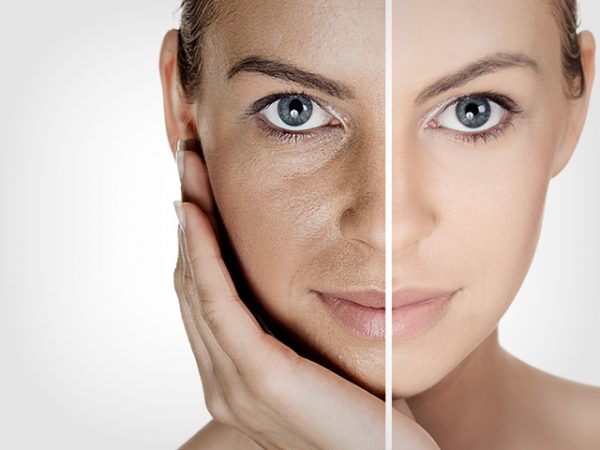Alcohol, a societal staple, has unintended consequences for skin health. While it may provide temporary relief, its consumption frequently results in dehydration, inflammation, and premature ageing. Understanding these effects is critical to maintaining skin vitality.
How alcohol affects the skin in major ways
Alcohol has significant effects on the skin. It dehydrates the skin, leaving it dry and dull. Alcohol can cause redness and swelling because it dilates blood vessels near the skin. It accelerates skin ageing by breaking down collagen and elastin, resulting in wrinkles and sagging. Alcohol also slows wound healing and can aggravate skin conditions like acne and eczema due to inflammation. Some of the effects of alcohol are detailed below:
Dehydration
Alcohol’s diuretic properties cause dehydration, which has a significant impact on the skin. When alcohol enters the body, it causes the kidneys to produce more urine, resulting in increased fluid loss. This dehydration affects internal processes and external tissues, such as the skin. When the body is deprived of moisture, the skin loses its natural hydration, resulting in dryness and a lacklustre appearance.
Dehydrated skin typically feels tight, rough, and uncomfortable. It may appear dull and flaky, which highlights fine lines and wrinkles. With adequate moisture, the skin’s ability to function optimally is maintained. The skin’s protective barrier, which normally retains moisture and protects against external aggressors, weakens in dehydration. As a result, the skin becomes more sensitive to environmental stressors, pollutants, and irritants, worsening dryness and discomfort.
Inflammation And Irritation
Alcohol consumption can lead to inflammation and irritation of the skin, aggravating existing skin conditions and causing discomfort. When alcohol enters the body, it triggers inflammatory responses that can manifest externally on the skin’s surface. Inflammation is the body’s natural defence mechanism against harmful stimuli, but excessive alcohol consumption can disrupt this process, leading to chronic inflammation and skin irritation.
Acne, rosacea, and eczema can all be amplified by inflammatory responses, which cause redness, swelling, and discomfort. Alcohol-induced inflammation can aggravate symptoms in people with sensitive skin, making it more prone to itching, burning, and stinging sensations.
Alcohol’s inflammatory effects also compromise the skin’s barrier function, weakening its ability to protect against environmental aggressors and pathogens. This can increase vulnerability to irritants and allergens, worsening inflammation and irritation.
Moreover, alcohol-induced inflammation can contribute to premature skin ageing by triggering the breakdown of collagen and elastin, proteins essential for maintaining skin elasticity and firmness. Over time, chronic inflammation can accelerate the formation of wrinkles, fine lines, and other signs of ageing, diminishing skin health and appearance.
Dilation of blood vessels
Alcohol consumption frequently causes dilation of blood vessels in the skin, which can result in visible redness and flushing. When alcohol enters the bloodstream, it causes blood vessels near the skin’s surface to dilate, increasing blood flow to the skin. This dilation of blood vessels causes the characteristic flushed appearance associated with alcohol consumption.
For individuals with conditions such as rosacea, a chronic skin disorder characterised by facial redness and visible blood vessels, alcohol-induced dilation can amplify symptoms and trigger flare-ups. The expanded blood vessels may remain dilated for an extended period, contributing to persistent redness and discomfort.
Moreover, dilating blood vessels can lead to uneven skin tone and blotchiness, detracting from the skin’s overall appearance. While the effects of alcohol-induced vasodilation are typically temporary, chronic alcohol consumption can result in prolonged and more pronounced dilation, further intensifying skin redness and flushing over time.
Skin Ageing
Alcohol consumption can contribute to skin ageing by speeding up the breakdown of collagen and elastin, two essential proteins that keep skin firm and elastic. Collagen and elastin provide structural support for the skin, making it appear smooth, plump, and youthful. However, excessive alcohol consumption can impair the production and function of these proteins, resulting in premature ageing.
Alcohol promotes the production of free radicals, unstable molecules that can harm cellular structures such as collagen and elastin fibres. Free radical damage, also known as oxidative stress, weakens the skin’s structural integrity and speeds up the development of wrinkles, fine lines, and sagging skin.
It can lead to complications during skin procedures
Alcohol can not only harm the skin but also complicate skincare treatments and procedures. It affects blood clotting, immune function, and healing processes. Common concerns include increased bleeding risk, delayed wound healing, and a compromised immune response. Alcohol’s interference with anaesthesia further heightens the risk of unpredictable reactions during procedures.
How to maintain healthy skin while enjoying the occasional drink
- Staying hydrated is important – drinking water before, during, and after alcohol use helps prevent the skin’s drying effects.
- Drinking alcohol in moderation and within recommended limits will help to reduce its negative effects on skin health.
- Decrease skin inflammation and ageing by choosing clear liquors and steering clear of sugary mixers.
- Antioxidant-rich, well-balanced diets promote skin repair and guard against alcohol-induced oxidative stress.
- Maintaining the integrity of the skin barrier and preventing dryness requires regular skincare practices that include cleansing, moisturising, and sun protection.
- Making sure you get enough sleep and paying attention to how your body reacts to alcohol can help you make changes to your skincare and alcohol consumption habits.

